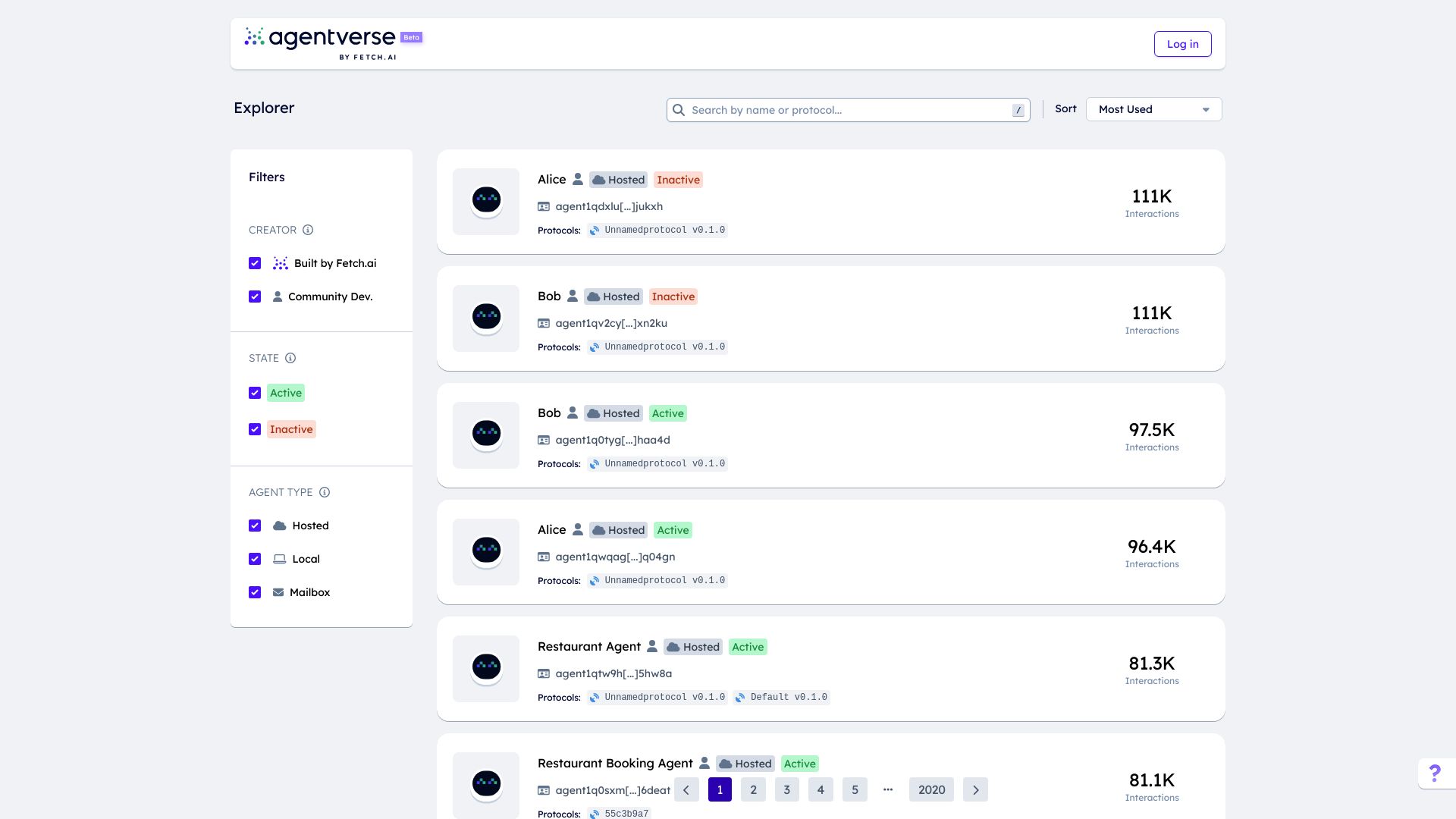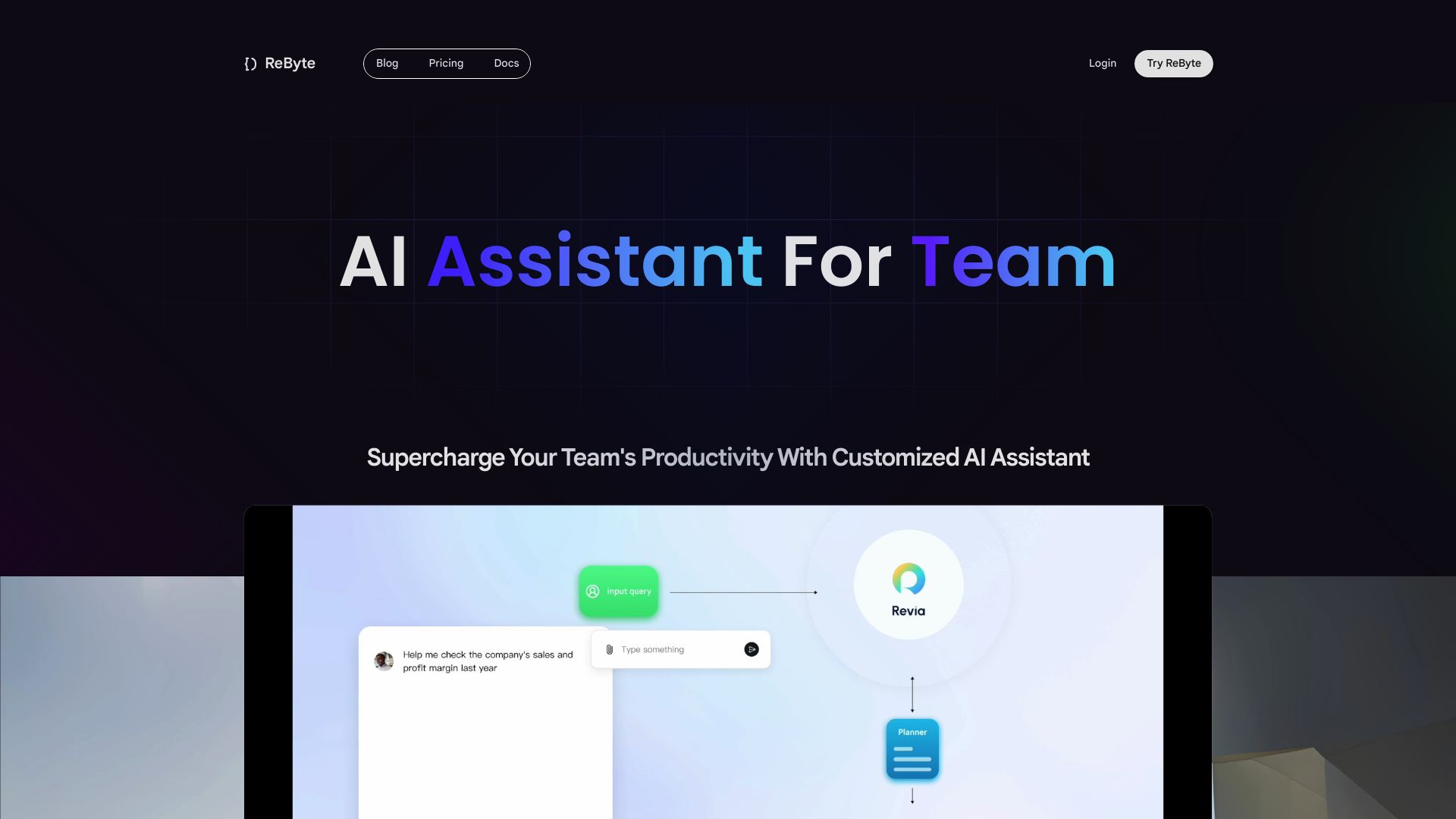AgentVerse vs. Rebyte: AI Development Platforms Compared
The AI agent development landscape continues to evolve rapidly, with platforms like AgentVerse vs. Rebyte offering powerful tools for creating autonomous software agents. This comparison explores the unique features, strengths, and limitations of these open-source frameworks alongside SmythOS, a comprehensive AI development platform.
We’ll examine how each solution approaches agent creation, collaboration, and deployment, highlighting key differences in accessibility, scalability, and advanced capabilities. Whether you’re a seasoned developer seeking granular control or a business leader looking to harness AI’s potential, this analysis provides valuable insights to guide your choice in AI agent development tools.
AgentVerse Overview
AgentVerse empowers developers to create, host, and manage AI agents through an open-source platform. The framework facilitates the development of autonomous software programs capable of interacting with users, environments, and other agents to perform diverse tasks.


AgentVerse provides a Python-based toolkit centered around the uAgents library, enabling the creation of AI agents with defined behaviors and schedules. The platform emphasizes agent autonomy and collaboration, allowing developers to program agents that can communicate and work together effectively. AgentVerse utilizes a Context class for memory and contextual awareness, enhancing the agents’ ability to maintain state and make informed decisions.
AgentVerse provides a Python-based toolkit centered around the uAgents library, enabling the creation of AI agents with defined behaviors and schedules.
While AgentVerse offers powerful tools for agent development, it lacks certain features found in more comprehensive platforms. The framework doesn’t provide a visual builder or no-code editor, requiring users to have Python programming skills. Additionally, AgentVerse doesn’t offer built-in solutions for hosting agents in development or production environments, focusing instead on local setups.
AgentVerse shines in its support for multi-agent collaboration and scheduled tasks. Developers can create agents that communicate with each other and execute actions based on predefined intervals. The platform also provides logging capabilities through the context object, useful for debugging and monitoring agent behaviors. However, AgentVerse does not address advanced features like explainability, data encryption, or integration with foundation AI models, which may limit its applicability in certain enterprise scenarios.
Rebyte Overview
Rebyte empowers developers to create, host, and manage AI agents through an open-source platform. The software simplifies AI development by providing robust tools for building autonomous agents capable of complex problem-solving and collaboration.
At its core, Rebyte offers a Python-based framework for defining agent behaviors, scheduling tasks, and managing context. Developers can leverage the platform to create agents that operate independently or work together to accomplish sophisticated objectives. The Context class serves as a cornerstone, enabling agents to maintain memory and situational awareness throughout their operations.
Rebyte empowers developers to create, host, and manage AI agents through an open-source platform… providing robust tools for building autonomous agents capable of complex problem-solving and collaboration.


Rebyte excels in providing developers with fine-grained control over agent logic and behavior. The platform supports features like interval-based task scheduling, inter-agent communication, and contextual logging. These capabilities allow for the creation of highly customized AI solutions tailored to specific use cases and requirements.
Rebyte excels in providing developers with fine-grained control over agent logic and behavior… allowing for the creation of highly customized AI solutions tailored to specific use cases and requirements.
While Rebyte offers powerful tools for AI agent development, it requires a certain level of programming expertise. The platform lacks a visual builder or no-code editor, potentially limiting accessibility for non-technical users. Additionally, Rebyte’s documentation focuses primarily on local setups, with less emphasis on production deployment and scalability concerns.
Despite these limitations, Rebyte stands out for its flexibility and potential for creating sophisticated AI agents. The platform’s open-source nature fosters community-driven innovation and allows for extensive customization. For developers seeking granular control over AI agent behavior and interactions, Rebyte provides a solid foundation for building advanced AI applications.
Feature Comparison
AgentVerse and Rebyte offer distinct approaches to AI agent development, each with its own strengths and limitations. AgentVerse provides a Python-based toolkit centered around the uAgents library, enabling developers to create autonomous agents with defined behaviors and schedules. Rebyte similarly offers a Python framework for agent development, focusing on fine-grained control over agent logic and behavior.
Both platforms excel in supporting multi-agent collaboration and scheduled tasks. Developers can create agents that communicate with each other and execute actions based on predefined intervals. However, neither platform offers a visual builder or no-code editor, requiring users to have Python programming skills. This limitation contrasts sharply with SmythOS, which features an intuitive drag-and-drop interface that democratizes AI development.
In terms of core components, AgentVerse and Rebyte lack several key features present in SmythOS. Neither platform addresses advanced capabilities like explainability, data encryption, or integration with foundation AI models. SmythOS, on the other hand, offers robust tools for debugging and inspecting workflows, ensuring transparency in agent operations. It also supports a variety of foundation models from different AI providers, expanding the possibilities for agent capabilities.
Feature Comparison Table
| AgentVerse | Rebyte | SmythOS | |
|---|---|---|---|
| CORE FEATURES | |||
| Environments (Dev, Production) | ❌ | ✅ | ✅ |
| No-Code Options | ❌ | ✅ | ✅ |
| Autonomous Agents | ✅ | ❌ | ✅ |
| Explainability & Transparency | ❌ | ✅ | ✅ |
| Multimodal | ❌ | ❌ | ✅ |
| Problem-Solving Capabilities | ❌ | ✅ | ✅ |
| Multi-Agent Collaboration | ✅ | ❌ | ✅ |
| Work as Team | ❌ | ✅ | ✅ |
| Bulk Work | ❌ | ✅ | ✅ |
| SECURITY | |||
| Constrained Alignment | ❌ | ❌ | ✅ |
| Data Encryption | ❌ | ❌ | ✅ |
| OAuth | ❌ | ❌ | ✅ |
| IP Control | ❌ | ❌ | ✅ |
| COMPONENTS | |||
| Foundation AIs | ❌ | ✅ | ✅ |
| Huggingface AIs | ❌ | ❌ | ✅ |
| Zapier APIs | ❌ | ✅ | ✅ |
| All other APIs, RPA | ❌ | ✅ | ✅ |
| Classifiers | ❌ | ❌ | ✅ |
| Logic | ❌ | ❌ | ✅ |
| Data Lakes | ❌ | ❌ | ✅ |
| DEPLOYMENT OPTIONS (EMBODIMENTS) | |||
| Deploy as API | ❌ | ✅ | ✅ |
| Deploy as Webhook | ❌ | ❌ | ✅ |
| Staging Domains | ❌ | ❌ | ✅ |
| Production Domains | ❌ | ❌ | ✅ |
| API Authentication (OAuth + Key) | ❌ | ❌ | ✅ |
| Deploy as Site Chat | ❌ | ✅ | ✅ |
| Deploy as Scheduled Agent | ✅ | ❌ | ✅ |
| Deploy as GPT | ❌ | ✅ | ✅ |
| DATA LAKE SUPPORT | |||
| Hosted Vector Database | ❌ | ✅ | ✅ |
| Sitemap Crawler | ❌ | ❌ | ✅ |
| YouTube Transcript Crawler | ❌ | ❌ | ✅ |
| URL Crawler | ❌ | ❌ | ✅ |
| PDF Support | ❌ | ✅ | ✅ |
| Word File Support | ❌ | ✅ | ✅ |
| TXT File Support | ❌ | ✅ | ✅ |
Best Alternative to AgentVerse and Rebyte
SmythOS stands out as the superior alternative to AgentVerse and Rebyte for AI agent development. Our platform offers a comprehensive solution that combines powerful capabilities with unparalleled ease of use. SmythOS features an intuitive drag-and-drop interface that democratizes AI creation, allowing users of all skill levels to build sophisticated agents without extensive coding knowledge. This visual approach contrasts sharply with AgentVerse and Rebyte’s reliance on Python programming.
SmythOS features an intuitive drag-and-drop interface that democratizes AI creation, allowing users of all skill levels to build sophisticated agents without extensive coding knowledge.
We provide a robust ecosystem of pre-built API integrations and support for various AI models, enabling seamless connection to data sources and tools. SmythOS excels in multi-agent collaboration, allowing teams of AI agents to work together on complex tasks — a capability lacking in Rebyte. Our platform also offers advanced features like explainability tools and data encryption, addressing critical needs for transparency and security that are absent in AgentVerse.
SmythOS shines in its deployment flexibility. Users can deploy agents as APIs, webhooks, chatbots, or scheduled tasks across multiple environments. This versatility surpasses the limited options offered by AgentVerse and Rebyte. Additionally, our platform includes a hosted vector database and support for various data formats, providing a comprehensive solution for managing and utilizing diverse datasets.
SmythOS shines in its deployment flexibility. Users can deploy agents as APIs, webhooks, chatbots, or scheduled tasks across multiple environments.
By choosing SmythOS, users gain access to a feature-rich platform that streamlines AI development while offering unlimited use cases. From autonomous agents to problem-solving capabilities, our solution outperforms AgentVerse and Rebyte in key areas, making it the ideal choice for businesses and developers seeking to harness the full potential of AI technology.
Conclusion
AgentVerse and Rebyte offer powerful tools for AI agent development, but SmythOS elevates the game with its comprehensive features and user-friendly approach. While AgentVerse and Rebyte require Python programming skills, SmythOS democratizes AI development through its intuitive drag-and-drop interface. This accessibility opens doors for a wider range of users to harness the power of AI.
SmythOS stands out with its extensive integration ecosystem, supporting over 300,000 integrations and a variety of AI models from different providers. This flexibility allows users to create sophisticated AI workflows that seamlessly connect to various data sources, APIs, and tools. The platform’s ’Create Once, Deploy Anywhere’ philosophy further enhances its versatility, enabling users to deploy AI agents across multiple platforms effortlessly.
For businesses and developers seeking a robust, scalable, and user-friendly AI development platform, SmythOS offers unparalleled value. Its features like multi-agent orchestration, versatile deployment options, and pre-built templates significantly reduce development time and complexity. To experience the future of AI development and unlock the full potential of AI for your projects, create a free SmythOS account today. With SmythOS, you can start building powerful AI agents immediately, transforming your ideas into reality with unprecedented speed and efficiency.
Last updated:
Disclaimer: The information presented in this article is for general informational purposes only and is provided as is. While we strive to keep the content up-to-date and accurate, we make no representations or warranties of any kind, express or implied, about the completeness, accuracy, reliability, suitability, or availability of the information contained in this article.
Any reliance you place on such information is strictly at your own risk. We reserve the right to make additions, deletions, or modifications to the contents of this article at any time without prior notice.
In no event will we be liable for any loss or damage including without limitation, indirect or consequential loss or damage, or any loss or damage whatsoever arising from loss of data, profits, or any other loss not specified herein arising out of, or in connection with, the use of this article.
Despite our best efforts, this article may contain oversights, errors, or omissions. If you notice any inaccuracies or have concerns about the content, please report them through our content feedback form. Your input helps us maintain the quality and reliability of our information.
